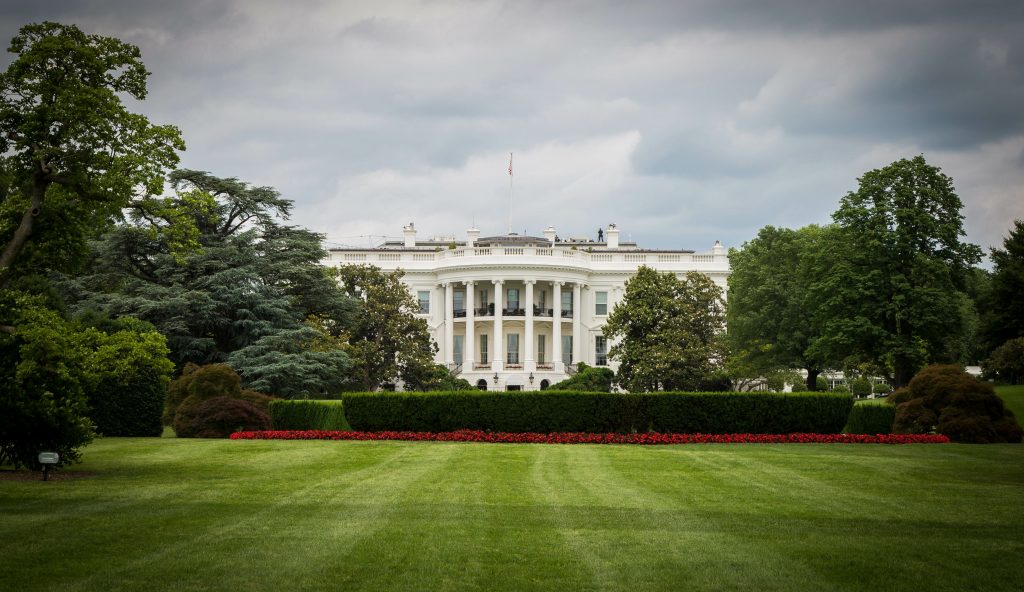
President Biden Promotes Government Partnerships with Faith-Based and Secular Organizations
By Executive Order 14015, issued on Sunday, February 14, President Joe Biden announced the reestablishment of the White House Office of Faith-Based and Neighborhood Partnerships. Later last week, on Feb. 18, the Office had already conducted a virtual open house to announce its open doors and to encourage faith and community groups to participate in the important effort to encourage widespread vaccinations against COVID-19.
According to the Executive Order, the new Partnerships Office (its short name) will lead the federal effort “to enlist, equip, enable, empower, and expand the work of community-serving organizations, both faith-based and secular.” Biden is the fourth consecutive president with a White House initiative to promote such partnerships. President George W. Bush created the first White House partnership office, following the adoption during the Clinton administration of the Charitable Choice principle requiring equal opportunity for faith-based organizations to compete for federal funding to provide services. President Barack Obama, after Bush, modified the partnership initiative, and President Donald Trump, after Obama, further modified it.
The Trump administration stressed religious freedom but downplayed the faith-based or partnership initiative. Trump’s Executive Order 13831 (May 3, 2018) eroded the consensus on the rules for federal funding by weakening protections for beneficiaries while strengthening the position of faith-based organizations. The Biden Executive Order revokes this change. While President Trump had designated only a White House Advisor for Faith and Opportunity Initiatives, President Biden has reestablished a distinct White House office, restoring the name it had under President Obama: the White House Office of Faith-Based and Neighborhood Partnerships.
Melissa Rogers, who led the Office during President Obama’s second term, leads the reestablished Office. Rogers is a widely respected expert on church-state law and policy. The Office will focus on policy and legal issues concerning how government agencies can enter into financial and non-financial partnerships with religious and secular private organizations. While President Trump’s Advisor and her deputy were located in the White House’s outreach office, Rogers will be connected to the Domestic Policy Council (DPC)–the White House’s chief locale for deciding on and steering policies. This connection strengthens the voice of the partnership agenda in the federal government’s operations. Moreover, Rogers has been appointed the Senior Director for Faith and Public Policy in the DPC, where she will advise more broadly on church-state issues. The Partnerships Office’s deputy director—Josh Dickson, who was the Faith Engagement Director for the Biden presidential campaign—will be linked to the White House’s Office of Public Engagement, and Trey Baker, a White House Senior Advisor for Public Engagement will be the liaison for African-American communities.
President Biden envisions the White House Partnerships Office working with civil society organizations on addressing the coronavirus pandemic and its economic damage, overcoming racial inequities, and strengthening pluralism, among other objectives. The partnership initiative is, in fact, an embodiment of pluralism: it protects the distinctive identities, operating and serving methods of civil society organizations in a way that enables them to contribute to the common good of our diverse society. These organizations work daily to serve others based on their respective springs of inspiration. A government committed to unity-and-diversity does well to fully engage the principles and practices of the partnership initiative.
The Biden Executive Order barely mentions the Centers for Faith-Based and Neighborhood Partnerships that exist in some dozen major federal agencies and help the agencies engage with and support civil society organizations to improve the effectiveness of federal services. These Centers were integral to the partnership initiative from the start because the agencies, and not the White House, award funds to private organizations and design programs of service. Fortunately, Melissa Rogers is familiar with the indispensable role of these Centers, and Josh Dickson, her deputy, served in one of the Centers during President Obama’s term.
It is good news for the causes of justice, compassion, effective federal services, and institutional religious freedom that the Biden administration has quickly activated the federal partnership initiative. It is good news that Melissa Rogers has been named executive director of the White House Partnerships Office because of her deep knowledge of the issues, her policy and administrative experience, and her commitment to listening to all sides and working for common ground policies.
The Biden design for the faith-based initiative extends the Trump administration’s stress on outreach to and enlisting the support of religious and secular groups; this either could deepen the partnerships between civil society and government or pressure organizations that should be independent to become the administration’s cheerleaders. Moreover, given the Biden administration’s strong stated commitments to the Equality Act and to reproductive rights, the administration will face a series of unprecedented challenges. The administration will need to maintain current federal policies that enable ongoing participation of diverse faith-based and community-based organizations to support their neighbors and to develop new policies that achieve this goal.
The Center for Public Justice has long been committed to upholding the ability of a wide diversity of faith-based and community-based organizations to serve. While we are confident there are unprecedented challenges ahead, the Biden administration’s decision to restore the White House Office of Faith-Based and Neighborhood Partnerships, and the significant inclusion of its Executive Director as a key member of the Domestic Policy Council, are hopeful signs that the administration may address the serious policy challenges ahead with a commitment to pluralism that benefits the broadest group of faith-based organizations.
